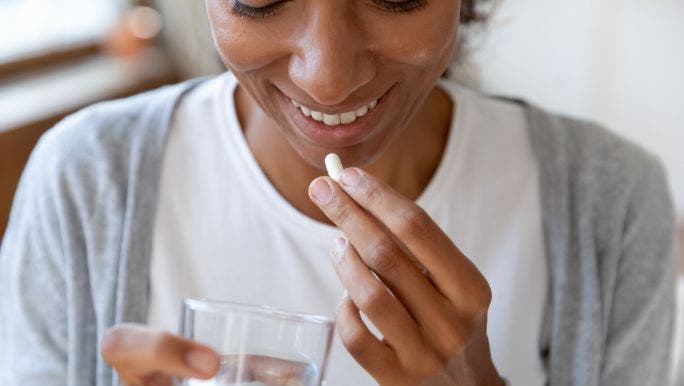Vaginal probiotics: should you be using them?

Key Points
- Certain probiotic strains, like Lactobacillus, have shown promising results in supporting vaginal health.
- Ensure probiotics are TGA registered and are strain specific for vaginal health.
- Vaginal probiotics are generally safe but consult a healthcare professional for any unusual symptoms or concerns.
Have you heard of vaginal probiotics? You’ve likely heard of probiotics, live microorganisms found in your gut and in foods like yoghurt and kimchi that contain a wealth of potential health benefits, as well as the fibre that feeds your intestinal probiotics, known as prebiotics.
But vaginal probiotics, specifically, are a relatively new area of research. With a growing buzz around these products, we spoke with Registered Clinical Nutritionist Tris Alexandra Jarvis to uncover their potential benefits.
What are vaginal probiotics?
First, let’s get acquainted with what vaginal probiotics are and how they may contribute to vaginal health.
“Just like our gut microbiome,” explains Tris, “our vaginal microbiome needs to be in a delicate balance to defend against infection.”
The vaginal microbiome is home to various bacteria, with the dominant strain being Lactobacillus. These ‘good’ bacteria play a vital role in maintaining the vagina’s natural acidic environment, which acts as a shield against harmful infections.
However, factors like antibiotics, hormonal imbalances, or specific infections may upset this balance, potentially causing issues such as yeast infections or bacterial vaginosis. Vaginal probiotics aim to replenish and maintain the optimal balance of these beneficial bacteria, supporting overall vaginal health.

There isn’t a one-size-fits-all answer to whether you should use supplements for vaginal health
Should you use supplements for vaginal health?
Now that we’ve established what vaginal probiotics are, the big question is: should you consider using them? According to Tris, the answer isn’t a one-size-fits-all solution.
“There’s likely no need to take vaginal probiotics unless you have symptoms or an infection,” she shares. Instead, she recommends practising “general hygiene to maintain vaginal microbiome health.”
Simple yet effective steps like avoiding vaginal douches, washes, and creams, opting for breathable cotton underwear, practising safe sex, and changing menstrual products regularly can go a long way in preserving the delicate balance down there.
There are, however, instances where vaginal probiotics may come into play. If you’re prone to recurrent infections or are taking antibiotics, consulting with a healthcare professional about the potential benefits of vaginal probiotics may be worthwhile. And while more research is needed, one study found that the vaginal microbiome of women with bacterial vaginosis was restored after two months with daily oral supplement of Lactobacillus rhamnosus GR-1 and Lactobacillus reuteri RC-14, two well-researched strains of probiotics. These specialised supplements may help support a healthy vaginal microbiome when needed.

Oral Lactobacillus probiotics may reduce some symptoms of menopause, including vaginal dryness
What should people look for when choosing vaginal probiotics?
If you’ve decided to explore the realm of vaginal probiotics, it’s important to make informed choices. “Vaginal probiotics are a newer field of research,” shares Tris “but there is good evidence to suggest they are effective at reducing recurrence of infections and symptoms.”
Selecting the right strain is important. There is evidence, for example, to suggest oral Lactobacillus probiotics may reduce some symptoms of menopause, including vaginal dryness, difficulty in sexual intercourse, urgency and increased urination. Ensure the probiotics you choose are TGA registered and specific for vaginal health. If you’re unsure, it’s always best to ask your healthcare professional.
Take care down there
Vaginal probiotics are unlikely to have any side effects and are generally recognised as safe, but if you have any unwanted symptoms or concerns, visit your healthcare professional.
Related:
- What is probiotic skincare and what are its benefits?
- Can collagen provide gut health benefits?
- Do hormones impact your energy levels?
Tris Alexandra Jarvis is a Registered Clinical Nutritionist with a special interest in women's health, hormones and fertility. She utilises functional testing, and combines evidence-based, holistic and practical nutrition strategies to help people transform their health and thrive.
Reviewed by Healthylife Health Experts October 2023
This article is for informational purposes only and does not provide medical advice, diagnosis or treatment. Any information published on this website or by this brand is not intended as a substitute for medical advice. If you have any concerns or questions about your health, you should consult with a health professional.